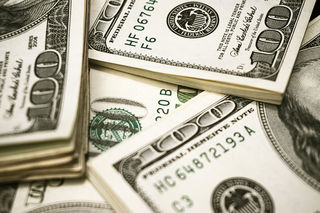
I’ve written previously about money, for example, The World’s Shortest Course on Your Money. Its format was standard: a series of tips. But some people prefer advice in context, in a story, hence this article.
His tie finally open, he slumped in his living room over his balloon glass of fancy French wine, opening the mail. He opened the credit card bill: $434 ... in interest. Glancing through the purchases, he was reminded of his near-daily $5 coffee at Starbucks, the $20 lunches, the 30 bucks for two drinks at The Hole, his collection of $100 Faconnable shirts.
His musing was interrupted by the phone: “Royce, I don’t know how say it so I’m just going to come out with it: We just don’t have enough fat-cat customers to pay your fat-cat commissions. So the company has decided to go in a different direction. We have to let you go.”
After hanging up the phone and firing it against the wall, Royce flashed on the fat monthly payment on his Mercedes lease, and especially on his fat mortgage—Although his house was just 1,700-square feet, its tony address ballooned the payment to $8,000 a month not counting insurance and taxes, let alone the gardener and housecleaner nor the payments on furnishing the place in a style “appropriate to the neighborhood.”
“Damn. I’m going to have to sell the Mercedes... I’m going to lose my house!” After gulping more wine and taking a big hit on his vape pen, he fell asleep.
In the morning, Royce called his “wealth manager” (glorified salesperson) who shrugged and said the useless, “We can sell your stocks so you can pay your bills, and of course, you do have to cut your expenses, Royce.”
Unable to find a job, Royce did have to sell his house and his Mercedes. Now he drives a 10-year-old Toyota and lives in an apartment in a marginal area. With walls adorned by Ikea -framed prints and the furniture that he didn’t need to sell, it looked fine, even to his upper-crusty friends, well, sort-of fine.
Instead of going out with them for $15 drinks and $15 caesar salads, he invites them to his apartment, for example, for cheap wine in a bottle that doesn’t look cheap plus his “world-famous homemade garlic-cheese popcorn,” which costs him pennies per serving.
He has sworn off buying more “stuff” and now, “vacation” means not Davos nor Dubai but a drive to some cool town or nature spot he hadn’t visited.
He told his son, who was in his first year at a dizzying-priced private college that he’d have to transfer to a community college (essentially free) and after finishing that, he could transfer to an in-state public college. Royce showed his son data that, contrary to helicopter-parent hysteria, neither his son's education nor career prospects would be impeded as long as he made the most of the college.
Royce had long thought about moving his money from that expensive financial services firm to low-cost but high-quality Vanguard, but now, he did it.
To bring in a little money until he could land a decent-paying job (as well as to provide some structure and meaning to his empty life), Royce took a job as assistant manager of a bookstore, which paid only a small fraction of what he had been making. Yet, as he sat alone one evening with his glass of Three-Buck Chuck, comparing his new life with his old, he actually felt happier living on less.
That composite story embeds six tips on managing your money:
- Job security is too often illusory: For example, your employer could “change direction.” Or a health issue could beset you, any number of things. It’s wise to live well within your means so you have a cushion. That’s especially wise because, beyond a bare middle income, additional spending doesn’t yield a commensurate increase in happiness. More "stuff" may even make you less happy.
More specifically, being parsimonious with just five items takes care of most of the overspending problem:
- Choose modest-size housing in an acceptable but not tony neighborhood—the price premium for prestige is huge, caused in part by the U.S.’s extreme income inequality—the rich can afford to pay lots for prestige.
- The same is true of a car: Buying a Toyota with 100,000 miles on it leaves most of its reliable life left but at a tiny fraction of the cost of a new Mercedes or Beemer, which require more service and break down more often. Leasing is usually an even worse deal. Over a lifetime, buying cars as described here can save you a fortune and lots of hassle.
- Per the just-cited article, once you control for a student’s high school record, the price of education and student outcomes are minimally correlated. You can save the money without short-changing the child.
- Other “stuff” like high-priced clothes, jewelry, furniture, and entertainment can, with little or no loss of pleasure, be replaced by modest versions.
- You can save big by avoiding high-priced investment advisors, sometimes called "wealth managers.” Many experts agree that investing in Vanguard funds is a wise choice, whether self-directed with just a little guidance from their representatives who are not on commission or from their advisors who offer more counsel for a modest fee.
So, are there one or more changes that you’d like to make to how you earn, spend, or invest money?
I read this aloud on YouTube.
This is part of a series in which tips are presented in the context of a story. The others are on procrastination, time management, finding Mr or Ms Right, and refreshing a stale relationship.




